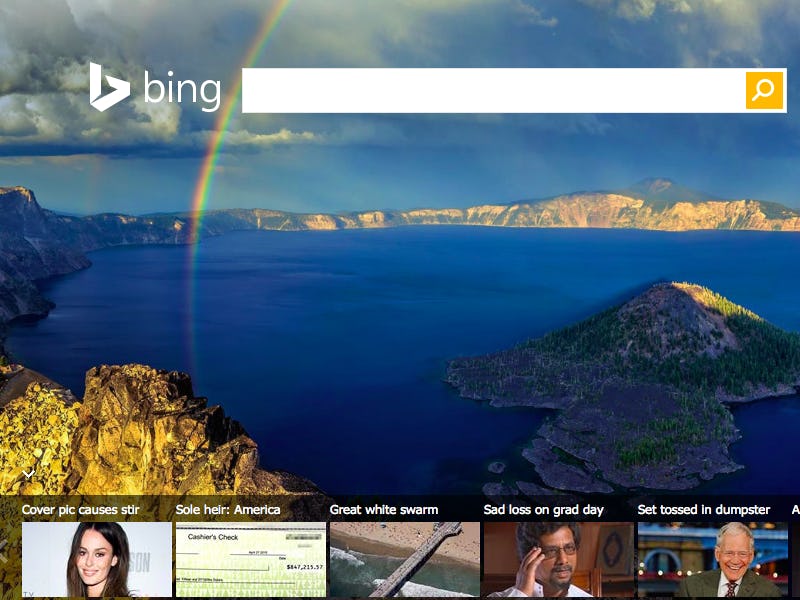Wait, People Are Actually Using Bing
Bing now accounts for 20 percent of desktop search traffic in the United States.

Six years after its launch, Bing might be slowly dinging Google.
Newly released data for April shows Bing accounts for 20.2 percent of searches in the United States. That’s still furlongs away from Google (65 percent), but it has passed Yahoo (12.7 percent) and it’s well ahead of fading portals like Ask (1.8 percent) and, wow, who knew, AOL still gets 1.1 percent? Learn something new every day.
Search has long been a sore spot for Microsoft. Its past attempts (remember MSN Search? Windows Live Search? Probably not!) all flamed out. Bing grew out of Microsoft's efforts to unseat Google, and hiring an army of engineers to make that happen.
Initially, it was such a disappointment its own employees wouldn't deign to use it. Now, not so much.
In an interview with the Seattle Times, VP of Bing Derrick Connell said Bing has halted Google from expanding its search footprint and swears its search results comparable to Google’s. “We want to be the best,” he said. “We believe in our technology.”
It hasn’t developed a technology to erase “Bing it On” from our memories, but its search results have improved. A Microsoft exec called it a “credible alternative��� to Google, to give you an idea of how far behind Microsoft has been. Elsewhere on the planet, it’s still an afterthought: Before Team Bing brings out the confetti, no one on earth uses Bing. A survey of the international search market share shows Google in dominant position at 80% and Yahoo trails in the “low single digits,” the Times notes.
Bing also trails badly on mobile. Still, even if it's not everywhere, it’s making progress somewhere.